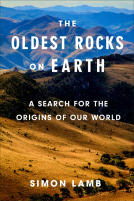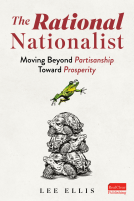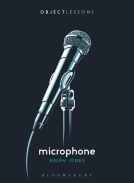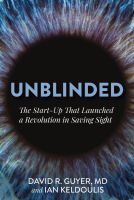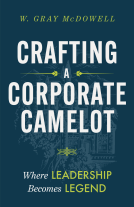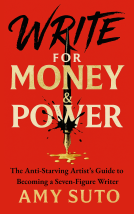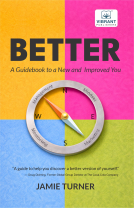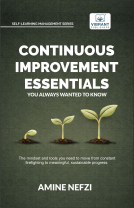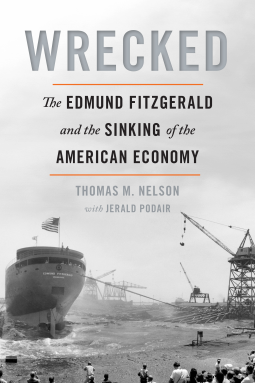
Wrecked
The Edmund Fitzgerald and the Sinking of the American Economy
by Thomas M Nelson; Jerald Podair
This title was previously available on NetGalley and is now archived.
Send NetGalley books directly to your Kindle or Kindle app
1
To read on a Kindle or Kindle app, please add kindle@netgalley.com as an approved email address to receive files in your Amazon account. Click here for step-by-step instructions.
2
Also find your Kindle email address within your Amazon account, and enter it here.
Pub Date 1 Aug 2025 | Archive Date 19 Jul 2025
Talking about this book? Use #Wrecked #NetGalley. More hashtag tips!
Description
Advance Praise
“This is the most thorough and complete work covering the sinking of the Edmund Fitzgerald. If you want to know everything about this tragedy, then you need to read this book.”—Toby Marcovich, attorney for the families of Michael Armagost, Ransom Cundy, and Freddie Beecher, crew members lost with the Edmund Fitzgerald
“Thomas Nelson has excavated the wreckage of one of America’s greatest tragedies to help us understand where our politics have gone wrong. As this book powerfully shows us, workers across the United States have been let down in the last few decades, just as the workers on the Edmund Fitzgerald and their families were let down in 1975. Nelson urges us to learn from this tragedy and offers a compelling path to restore a true workers’ democracy in the United States. This book couldn’t be more timely.” —Jon Shelton, professor and chair of Democracy and Justice Studies, University of Wisconsin–Green Bay
“Lovers of Gordon Lightfoot’s ballad ‘The Wreck of the Edmund Fitzgerald’ will read Wrecked to find out what actually happened to both the ship and its individual crew members. Thomas Nelson and Jerald Podair succeed in intertwining this tale with a bigger and equally heart-wrenching story: the disappearance of American manufacturing, the rusting and decline of unions, the disintegration of infrastructure and safety standards, and the abandonment of American workers.” —Anne-Marie Slaughter, CEO, New America
Available Editions
| EDITION | Other Format |
| ISBN | 9781611865417 |
| PRICE | $29.95 (USD) |
| PAGES | 222 |
Available on NetGalley
Average rating from 16 members
Featured Reviews
 Mike M, Media/Journalist
Mike M, Media/Journalist
A fascinating book about a fascinating subject. There probably will never be an end to the books written about the Edmund Fitzgerald, but this one is a welcome addition.
Living on Lake Superior, I enjoy reading about the Edmund Fitzgerald. It is part of the heritage of this area. The story is well told and I enjoyed every word.
I received an ARC from NetGalley, asking for my honest review. This review is mine and opinion is my own.
I love any book that has to do with Michigan, so this was a enlightening and great read for me! It was very informative about a piece of history that ironically isn't taught in the Michigan curriculum.
 Educator 1491735
Educator 1491735
Wrecked was a great and informative read about a well known event. I really loved the way the author not only examined the sinking but also the way it was connected to a much larger world. I think the most powerful part of this was seeing the way the sinking impacted the families. I would definitely use this as a way to have students examine how things are intertwined.
 Mary C, Reviewer
Mary C, Reviewer
Thank you to NetGalley for this e-copy of Wrecked by Thomas M Nelson and Jerald Podair in exchange for a honest review.This is the true story of the Edmund Fitzgerald ,the infamous ship that sunk in Lake Superior in Nov of 1975.The demise of the Fitz heralded the decline of the shipping industry in America amidst other economic woes in the US at the time..Unfortunately the survivors families struggled to survive financially in the aftermath of this disaster and were not fairly treated by the ship’s owners-Northwestern Mutual Life Insurance nor the charterers of the ship- Oglebay-Norton .Plain and simple the Fitz was not maintained properly and was an accident waiting to happen..This book was definitely an eye opener about a black mark on our nation’s history.
What this book seeks to accomplish is to place the Edmund Fitzgerald in a bigger, more significant historical context than other works have done. from Wrecked by Thomas M. Nelson
We were at the Great Lakes Shipwreck Museum on the shores of Lake Superior shortly after the bell of the Edmund Fitzgerald was installed. My husband and I knew well Gordon Lightfoot’s song about the sinking of the Edmund Fitzgerald, one of the largest freighters on the Great Lakes, but we were there became our son’s third grade teacher had ignited his interest in Great Lakes shipwrecks. He had read dozens of books, including many about the Ftiz.
Since its sinking on November 20, 1976, people have searched for the cause of the disaster. This book considers a cause beyond storm and wave or human error by those in charge. It considers the broader picture–how neoliberal economics and business’s concern for profit over safety left the Fitz in ill repair, and left the American economy floundering.
I have read several books that trace the fallout of neoliberal economics, and how the loss of union jobs and manufacturing gutted the middle class. This one is specific in its concern while considering the disaster’s place in the greater picture of changing economics since WWII.
Nelson recalls when “not everyone was out for themself, ” when the concern was for “more than profits and stock dividends; there was community and a way of life that fostered an inclusive society where the American dream was within reach for the average American family.” He builds a narrative to explain step by step how economic policy from both sides of the aisle resulted in the death of a strong middle class. And, also harmed shipbuilding in America.
The Fitzgerald was not seaworthy and had been neglected for years. from Wrecked
But there is real heart in the book as well. Nelson interviewed the family members of the twenty-nine crew lost on the wreck. Bodies were discovered on the wreck, and the families fiercely protect it as the final resting place of their loved ones. There was contention over allowing the ship’s bell to be retrieved for the museum.
The book also considers the environmental damage to Lake Superior, including climate change, invasive species, and PCBs, a ‘forever chemical’ that has contaminated water across Michigan and even has been found in the dust in Detroit’s streets. Trump recently rolled back regulations.
“The men of the FItzgerald were heroes,” Nelson ends. They were why America had the steel needed to build the machines that drove industry and farming in America. “We must recognize what shipbuilding means: national and economic security.” He contends that with the political will we can support a reemergence of shipbuilding in America.
Thanks to the publisher for a free book through NetGalley.
 Reviewer 197384
Reviewer 197384
After World War II, the United States was the world’s largest shipbuilders. These same shipbuilding companies soon fell victim to overseas competition with cheaper labor, less environmental restrictions, and a US government that no longer subsidized the industry like other countries continued to do. Market share fell and, in a never-ending quest to maintain profit margins, American companies began using shortcuts to remain competitive. Cutting corners caused the quality to plummet, and soon American shipbuilders began shutting doors.
The Edmund Fitzgerald was built in the late 50s and Nelson argues that Great Lakes Engineering Works designed the ship with major flaws, a design that didn’t take into effect the weakening of its structure in an effort to stretch its length to record proportions. Couple this with a severe lack of maintenance over its life, overlooked safety issues, and pushing the ship past its cargo capacity limit and running her longer into the year when Lake Superior storms were their strongest. Its a wonder more ships didn’t go to the bottom.
Nelson does a nice job bringing the economy angle into Wrecked to give it a different look than a simple retelling of the ship’s sinking. There were some interesting facts that I either didn’t know or realized had any bearing on the tragedy of the Edmund Fitzgerald. I do find it ironic that with all the sonar technology out there, more explorers haven’t used it to help determine the exact cause of the wreck. Maybe there’s more to the coverup conspiracy than meets the eye.
3.5 Tons of Taconite out of 5
I started this book because I really love learning about maritime disasters! However, I don't think I was prepared for how heavy of a read this was. If you're really into learning about US history, namely economic and industrial history, you'll love this book. I, however, am more into social history and learning about the events themselves, so this book did take me a bit longer to get through than I'd hoped.
The author did an incredible job researching and interviewing individuals who were directly involved with the Edmund Fitzgerald, including family members who lost their loved ones to the sinking. I think the interviews were my favourite part. It really put into perspective both how recent it was and the impact the sinking had on individuals. Learning about the legal battles of the families and how poorly they were treated after just having suffered a tragedy, as well as the small semblance of closure the families received years later with the retrieval of the ship's bell, was both incredibly interesting and added a personal aspect, along with the author's research journey being woven in.
I also really enjoyed the parts that included Ojibwe history, especially as the original caretakers of Lake Superior. This is a vital piece that is often overlooked or ignored altogether.
Overall, I think this book was incredibly well-researched and is a great resource for those interested in this type of history. I would absolutely recommend it in a university-level classroom setting!
Readers who liked this book also liked:
Lee Ellis
Politics & Current Affairs
Dr. David Guyer & Ian Keldoulis
Business, Leadership, Finance, Health, Mind & Body, Science
Jamie Turner, Vibrant Publishers
Business, Leadership, Finance
Amine Nefzi, Vibrant Publishers
Business, Leadership, Finance
Inga Strümke
Computers & Technology, Nonfiction (Adult), Professional & Technical
Jennifer L. Armentrout and Rayvn Salvador
Reference, Romance, Sci Fi & Fantasy
